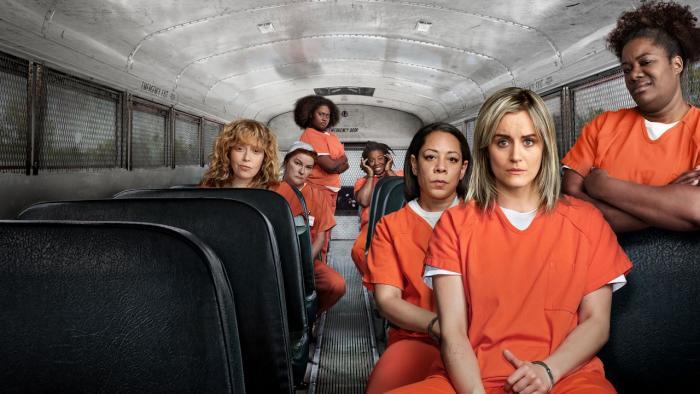Netflix’s “Orange is the New Black” just hit a lot closer to home.
At a CNN Town Hall on April 22nd, a Harvard student asked Bernie Sanders if he thought that terrible people like the Boston Marathon Bomber should have the right to vote.
When Sanders responded “Yes, even terrible people” the statement immediately stirred up controversy. People from both sides of the aisle were quick to voice their criticism. But the student’s question may have neglected a more pressing issue.
It only looked at one extreme example and failed to address the disenfranchised population as a whole. An estimated 6.1 million people are not allowed to vote because of felony convictions — more people than live in Wisconsin — and many of them are not “terrible people” like the Boston Bomber. You would think that in 2019 we would be making it easier to vote, so how then did the disenfranchised population grow so large? That story begins with the Fourteenth Amendment.
The Fourteenth Amendment is famous for doing away with the notorious 3/5ths compromise and giving African Americans equal protection under the law. This amendment was a major breakthrough in enfranchising minority voters, but the authors naively included a loophole. Here is an abridged version of section 2 of the Fourteenth Amendment:
Representatives shall be apportioned among the several States according to their respective numbers, counting the whole number of persons in each state. But when the right to vote is denied to any inhabitant of such state, except for participation in rebellion or other crime, the basis of representation therein shall be reduced in proportion.
No Matter How Small
The ‘except for participation in rebellion or other crime’ exception allowed states to disenfranchise anyone who committed a crime — no matter how small — and face no consequences for doing so. Theoretically, a state could revoke a person’s right to vote for jaywalking. Southern states saw section 2 as an opportunity to once again disenfranchise black voters and, during reconstruction, that’s precisely what they did.
Take for example Alabama. During the state’s 1901 Constitutional Convention, they passed a law that disenfranchised anyone who committed “any crime…involving moral turpitude.” The list of offenses “involving moral turpitude” was comprised mostly of crimes that African Americans were statistically more likely to commit than white people. Crimes like vagrancy and adultery were included in the list. The reason for this law was stated plainly during the convention. It was meant “to establish white supremacy in this State” within the “limits imposed by the Federal Constitution.”
Hunter v. Underwood
The federal government finally addressed Alabama’s affront to democracy 84 years later, after the state disenfranchised two people for writing bad checks. Those two people challenged Alabama in court, and the case — Hunter v. Underwood (1985) — wound up in the Supreme Court. In a unanimous decision, the SCOTUS found that Alabama’s law violated the Fourteenth Amendment because it purposefully discriminated against African Americans. This ruling made it a lot more difficult for states to leverage the Fourteenth Amendment’s loophole, but it didn’t stop them completely. The Justices worded the decision in such a way that it only applied to misdemeanors. Felonies were still fair game.
Since the Hunter v. Underwood ruling, some states have become quite efficient in using felony convictions to disenfranchise minority voters. According to one study the percentage of black men with a felony conviction rose from 13% in 1980 to 33% in 2010. In Florida alone (before Amendment 4 passed,) 1,541,602 citizens (8.2% of the state’s population) are barred from voting because of felony convictions.
Despite what all the ‘Florida Man’ headlines would lead you to believe, 8.2% of Floridians are not “terrible people” like the Boston Marathon Bomber. Most were convicted of lower-level felonies like marijuana possession, and, despite completing their prison sentences, still had no chance at ever voting again without Amendment 4 passing last election. Maybe it’s time to stop talking about the Boston Bomber and start asking, “When we give states the power to purge citizens from their voter rolls, do they abuse it?”
You can hear a full story about Felony Disenfranchisement on the fourth episode of Bleeped, a podcast about censorship and the people who stand up to it.

